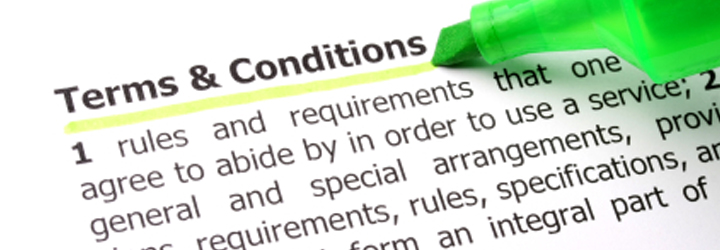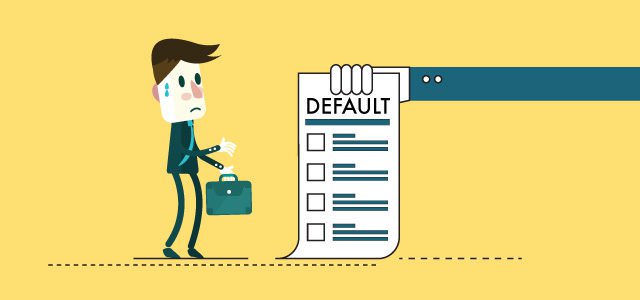If you have ever searched for a commercial loan, you might have come across two different types of loans, secured and unsecured loans. Unsecured loans often come with a higher interest rate, but they work without collateral.
Secured loans need collateral to reduce the lender’s risk, and borrowers need to pay a lower interest rate as compared to non-secure loans. There are two major types of secured loans, recourse loans, and non-recourse loans. These loans come with different risks and benefits.
What Are Non-Recourse Loans And How Do They Work?
‘Non-recourse’ (as defined by the Internal Revenue Service IRS) in the non-recourse loans refers to the recovery process in case of a default. In case of a default, a lender can pursue legal action, but he cannot access any asset besides the one used as collateral.
Recourse Vs Non-Recourse Loans
In case of a recourse loan, a lender can obtain a lien on property beside the collateral as well. It is done through a proceeding known as ‘Deficiency Judgment’.
In case of a non-recourse loan, they cannot access any other property besides collateral. The terms ‘recourse’ and ‘non-recourse may apply to all kinds of loans.
As a borrower, your assets are better protected with a non-recourse loan. Both the loans need some collateral to work. In the case of a default, your credit score will be affected with both types of loans.
Even though your assets are protected in case of a non-recourse loan, you’re still liable to pay the outstanding amount. In case you commit fraud or misrepresent facts, a lender can come after your assets through the carve-out provisions.
How Does A Non-Recourse Loan Work?
If you need a commercial loan but you don’t want to put your house as security, a non-recourse commercial loan might work for you. This type of loan is designed for commercial investments and allows business owners to access funds for business-related activities.
In case of a loan default, borrowers are not held liable personally. To apply for a non-recourse loan, the borrower needs to be financially strong. To justify the risk, the lenders offer non-recourse loans only to the business owners with sufficient cash flow. Borrowers need to demonstrate sufficient cash flow and the lenders take DSCR (Debt Service Coverage Ratio) into account.
The Underwriting Process
Lenders as well as borrowers, both of them assume their respective portions of risks in the signed non-recourse loan agreement. Non-recourse loans are characterized by inconsistent revenue streams, high-capital expenditures, and long-term loan periods. Due to that, lenders often charge high interest rates to reduce the element of risk.
Advanced financial modeling knowledge and experience is necessary for the underwriting process.
Terms And Conditions

The commercial lending industry is mostly unregulated and the lenders can set their own terms and conditions. They can charge higher interest rates as compared to the standard interest rates. For instance, the lender can take a business asset as security or impose limits on the borrower’s personal income through the business.
Security
Generally, these types of loans are offered to applicants who want to purchase commercial properties like factories, office buildings, warehouses, self storage facilities, retail premises, etc. The value of such properties usually doesn’t fluctuate too much and they can easily be converted into cash in case of a loan default.
It is extremely important for the borrowers to obtain financial legal advice before they enter into a non-recourse loan agreement.
Advantages And Disadvantages Of A Non-Recourse Loan
Non-Recourse Loan Advantages
In case of a loan default, lenders cannot hold the borrowers liable personally. Borrower’s personal assets remain protected. This type of loan offers a simplified method for companies that have multiple directors.
Non-Recourse Loan Disadvantages
Non-Recourse loans are offered to businesses with good cash flow. Lenders charge higher interest rates as compared to the standard interest rates. As the commercial lending industry is unregulated, lenders are relatively free to set their own terms and conditions to minimize the risks.
Why Choose A Non-Recourse Loan?
The non-recourse loans are highly popular among the real estate investors. It limits the personal liability of the investor in case the project fails. You can go for a non-recourse loan if you want to protect your personal assets.
If you have a bad credit rating and it is difficult for you to avail other types of commercial loans, you can go for a non-recourse loan.
Provisions To Protect The Lenders
Non-recourse loans protect the personal assets of the borrowers, but there are provisions that protect the lenders as well. Let’s look at some of the provisions.
Bankruptcy Filing

The law comes to protect the lender if the borrower files for the bankruptcy voluntarily. In this case, the non-recourse clauses can be ignored and the lender can pursue the borrower individually.
Fraud And Misrepresentation
If it is discovered that the borrower has perverted the facts willfully while securing the loan, the borrower can be held personally liable. It can alter the terms and conditions of the non-recourse loan, and the lender can claim the full amount.
Delaying Tactics
If the borrower institute actions that are delaying tactics, it may lead to the foreclosure of the property. This is done in bad faith by the borrower.
Non-Maintenance Of Insurance
The non-recourse loan can become a recourse loan if the borrower fails to maintain the insurance until the loan continues. This stipulation is very common in the most non-recourse loans.
Non-Payment Of Taxes
If the borrower fails to pay the property taxes and withholds the information from the lender, the non-recourse loan can become a recourse loan. In an ideal situation, the property should be free from the tax liability.
Types Of Property
Commercial Property
To start a business, you will most likely need a commercial space, whether you need an office space, a warehouse or space for a factory, you can use the non-recourse loans to buy commercial properties.
If your business is growing, you will need some kind of commercial space to set up an office in a new city or town. It becomes easy for you to avail the non-recourse loans if you are strong financially.
Agricultural Property
You can also use the non-recourse loan to buy an agricultural property. You can also implement a lease contract and earn an additional income if your property is used for crops or livestock.
Multi-Unit Property Ion-recourse loans are also used for buying the multi-unit properties. Whether it is an apartment building or a multi-family home, you can lease the apartments or living space in the building you purchase with a non-recourse loan.
Residential Property

Non-recourse loans can be used for residential houses. If you want to move to a new city, renting can be an incredibly expensive option for you A number of borrowers buy some kind of residential properties, such as townhouses, condominiums, with these types of loans.
Alternatives To Consider
Secured Business Loan
A secured business loan is a common alternative to a non-recourse commercial loan. You can put your residential property as security and avail discounted interest rates. You can borrow as much as 100% of a property‘s value.
A secured business loan comes with an inherent risk of losing your residential property. You need to evaluate your options to suit your requirements.
Business Loan With A Guarantor
You can also consider taking a business loan with a guarantor In this case, a guarantor will have to offer his residential property as loan security. Generally, a guarantor is someone who is in a close relationship with the borrower or somebody who has a legitimate interest in the business. It’s a viable way of accessing the funds for your business in case you cannot put your residential property as security.
Do You Need A Lawyer Before Taking A Non-Recourse Loan?
Sometimes, it can be difficult to understand how non-recourse loans work. You can take the help of a lawyer to understand the terms and conditions before signing the non-recourse loan agreement. A lawyer can help you understand the concepts like ‘deficiency judgment’ or other concepts related to your loan.
The anti-deficiency laws may vary from state to state, and you will need the help of the lawyers to understand them better. These laws prevent the lenders from filing the deficiency lawsuits in case you are not able to pay back the loan.
Final Thoughts
While searching for the ways to fund your business, you might come across a non-recourse loan. These types of loans are offered by private lenders as well as commercial banks. A number of businesses use these types of loans to fund their business. As an entrepreneur, it is very important for you to familiarize yourself with such types of loans.
The non-recourse terms of the loan can protect your personal assets in case you fail to pay back the loan. However, you must not misrepresent the facts or use delay tactics, and you must stick to the terms and conditions of the non-recourse loan agreement.
You can use these loans for many types of buildings. To mitigate the risks, lenders charge higher interest rates on the non-recourse loans as compared to the other types of loans. You must seek legal advice from a lawyer to understand how non-recourse loans work in your area.







